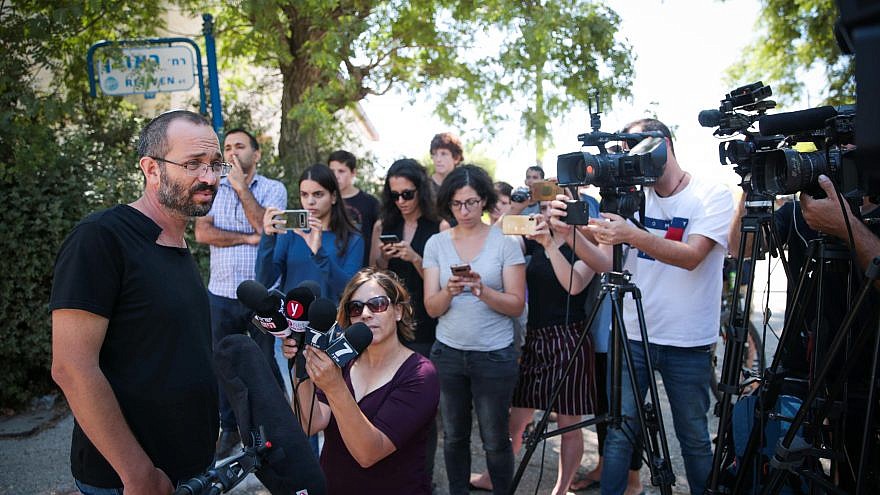The slaughter last week of 19-year-old yeshivahstudent and Israel Defense Forces’ recruit Dvir Sorek from the Judea and Samaria community of Ofra was not exceptional. Palestinian terrorists with hatred in their hearts and weapons in their hands are integral to the Jewish state’s otherwise vibrant landscape.
But this particular tragedy struck a nationwide nerve even among those who blame the so-called “occupation” for Palestinian violence, and consider citizens like Sorek to be illegally and immorally living in territory that should become part of a future Palestinian state.
One detail of Sorek’s slaying that caused even hard-core leftists to pause was the fact that this “religious settler” was found clutching a book by internationally renowned author David Grossman. The book was among others that Sorek had purchased prior to his brutal murder as end-of-the-year gifts to his rabbis at the Machanayim seminary, an institution that combines Torah study with military service.
Unarmed and in civilian clothes, Sorek was ambushed by his knife-wielding killers as he made his way on foot from the bus stop to his evening class. His failure to arrive sparked the search that led to the discovery of his body six hours later.
Grossman, who was awarded the Israel Prize for literature in 2018 by then-Education Minister Naftali Bennett—a kipah-wearing right-winger—is an outspoken leftist. He is also a bereaved parent, whose own son fell in battle during the 2006 Second War in Lebanon. This was two days after Grossman and two other iconic left-wing Israeli writers, Amos Oz and A.B. Yehoshua, called for an end to the fighting against Hezbollah.
When Grossman learned from the media that Sorek had been holding a copy of one of his books at the time of his murder, Grossman was both moved and shocked.
“I’ve heard a lot about him over the course of the day,” he said of Sorek. “A kind, sensitive, youth who loved others and loved peace, with the soul of an artist. My heart goes out to his parents and his family and all who loved him. I say from experience that this is the start of a very long and difficult road. I know also that a young man as special and unique as he was will light their path in their grief.”
It was a beautiful eulogy for a young man he had not known. Sadly, however, had Sorek been carrying a Bible while being stabbed multiple times, the only people who would have described him as having had the “soul of an artist” are those not put off by his place of residence, skull cap or long peyot (sidelocks). Indeed, faced with what they clearly viewed as a contradiction in terms, Grossman and his fellow peace fantasists were stunned to the point of mourning Sorek in a totally uncharacteristic manner.
It was clear from the outset that it hadn’t occurred to any of them that such a kid—representing an “obstacle” to peace with the Palestinians—could be a “kind, sensitive, youth who loved others and loved peace.”
Meanwhile, Palestinians celebrated Sorek’s gruesome demise by distributing candy and setting off fireworks. You know, as an expression of gratitude to those whom Hamas referred to in a statement as “heroic fighters.”
This cheerful reaction to the bloody murder of an innocent Jew was par for the course in the Palestinian Authority and Gaza. The only surprising response came from the Israeli left, which was forced to acknowledge—however grudgingly and fleetingly—that it might not have sole dibs on sensitivity or the strive for peace.
May Dvir Sorek’s memory be a blessing, and may his legacy be a lesson to all self-congratulatory “enlightened” Jews in the ills of arrogance and prejudice.
Ruthie Blum is an Israel-based journalist and author of “To Hell in a Handbasket: Carter, Obama, and the ‘Arab Spring.’ ”


























